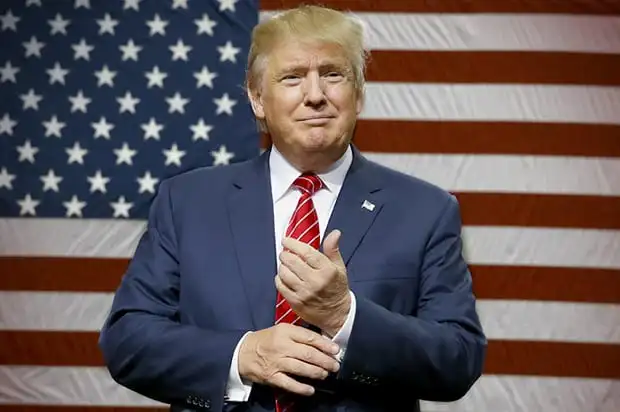A federal appeals court delivered a major blow to President Donald Trump’s trade policy Friday, ruling that his sweeping global tariffs exceeded presidential powers and violated constitutional limits on executive authority.
The US Court of Appeals for the Federal Circuit, in a 7-4 decision, found that Trump unlawfully relied on emergency powers to impose tariffs earlier this year. The ruling represents the administration’s second significant loss in the closely watched case.
The decision strikes at the core of Trump’s aggressive trade policy, with judges ruling that most of the president’s global tariffs are illegal. The case, known as V.O.S. Selections v. Trump, was brought by small businesses challenging the tariff authority.
The court determined that Trump had misused his authority when imposing tariffs under an emergency-powers statute, ruling that only Congress has the power to apply such sweeping measures. However, judges allowed the tariffs to remain in place while legal proceedings continue.
The ruling specifically targeted Trump’s use of the International Emergency Economic Powers Act to justify broad tariff implementation. The court ruled that Congress, in passing the IEEPA, did not give the president “wide-ranging authority to impose tariffs of the nature of the Trafficking and Reciprocal Tariffs”.
The Court of Appeals for the Federal Circuit in Washington largely upheld a May decision that found Trump had overstepped his authority in imposing universal tariffs on all US trading partners. The earlier ruling had already challenged the legal foundation of the tariff program.
The decision comes as businesses and economists have warned about the economic impact of widespread tariffs. Small businesses that filed the case told the court that the “tariffs are projected to amount to an average tax increase of $1,200-$2,800 per American household in 2025”.
Trump announced plans to appeal the decision to the Supreme Court, setting up a potential constitutional showdown over the extent of presidential trade powers. The high court could ultimately determine whether presidents can unilaterally reshape international trade relationships.
The judges said the tariffs can stay in place as the case proceeds, meaning businesses and consumers will continue facing the additional costs while legal challenges work through the system.
The ruling highlights ongoing tensions between Congress and the executive branch over economic policy authority. Courts have increasingly scrutinized presidential use of emergency powers for policies that traditionally required legislative approval.
For international trading partners, the decision creates uncertainty about the durability of current trade relationships. Countries have been adapting their economic strategies based on US tariff policies that may now face legal challenges.
The case represents a test of constitutional separation of powers, with judges emphasizing that tariff authority has historically belonged to Congress. The Constitution grants Congress specific power to regulate commerce with foreign nations.
Business groups that opposed the tariffs argue the ruling validates concerns about presidential overreach in trade policy. They contend that such sweeping economic measures require legislative input rather than unilateral executive action.
The Supreme Court appears likely to take up the tariff question soon, given the significant constitutional and economic issues involved. The justices’ decision could have lasting implications for presidential trade authority.
The appeals court decision affects tariffs imposed under emergency powers but doesn’t necessarily impact other trade measures implemented through different legal authorities. The administration may need to rely on alternative legal justifications for future trade actions.
Source: newsghana.com.gh











